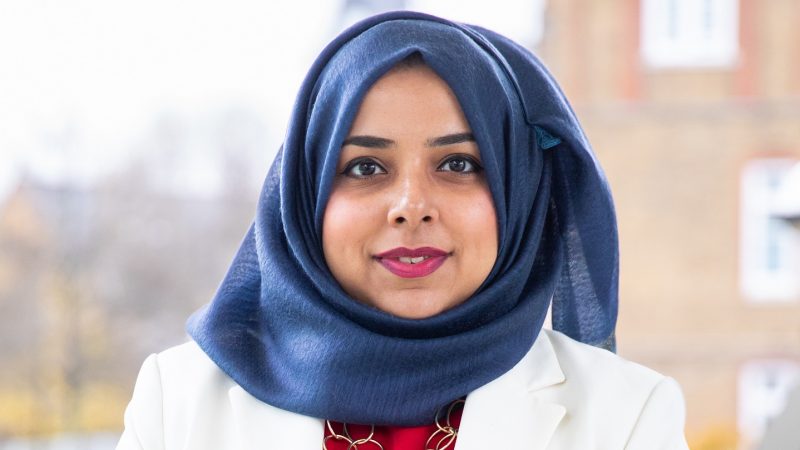'At a time when identity and belonging are more important than ever, it is devastating that these sorts of services are being cut and privatised'

Apsana Begum is the Labour Member of Parliament for Poplar and Limehouse since 2019 and tabled a motion in Parliament on the importance of community language services.
“One language is never enough”
When I spoke this sentence in my mother language Sylheti in Parliament, I understood that I was the first person to do so, and I am proud to have added another of the many languages spoken in Britain to the Hansard records. I led a parliamentary debate to commemorate Language Martyrs Day and International Mother Languages Day (IMLD), an important day in Tower Hamlets, the borough I grew up in and now am a Member of Parliament for.
The day is marked on the 21 February every year to remember the events on that day in 1952, when five political activists and students were killed and many injured in Dhaka (in the then East Pakistan). They were protesting and demanding that their mother language, Bangla, be given official status by the then Dominion of Pakistan. It wasn’t until 1956 that the constitution was amended to reflect both Urdu and Bangla as official state languages.
The events of 1952 resonate in Tower Hamlets and across the world. We do not have to be alike to have the same interests and shared sense of solidarity. The lessons of the Bengali language movement and the events of 1952 should serve as an opportunity to reaffirm our commitment to preserving linguistic and cultural diversity, and a warning against attempts to sow division, intolerance and hate by categorising groups as ‘other’.
Indeed, the case for this should be made now more than ever as the government continues with its attempts to engage in ‘culture wars’ by scapegoating minoritised groups with their anti-trans and hostile anti-immigration rhetoric. Blaming these communities for the government’s wider failings only fuels fear and exacerbates the harmful impact of racism and transphobia in society.
In Tower Hamlets where more than ninety different languages have been identified as being used, we see the rich tapestry of our linguistic diversity as something to be cherished. Against tides of hate and intolerance, communities that have settled here from all around the world have not just thrived but stood together against attempts to sow division.
Before I was elected, I joined campaigners to defend local community language services who then provided education in Tower Hamlets in 11 different mother tongue languages. The service was delivered by council employed tutors at sites across the borough. I supported the campaign as I believe it is through language that the culture and identity of a people are understood.
That is why I continue to campaign for community language provision to be free at the point of use, and for digital technology to be made widely available for multi-lingual learning. At a time when identity and belonging are more important than ever, it is devastating that these sorts of services are being cut and privatised when they should be invested in and expanded, especially when we know that language services help provide people with an understanding of their first language and culture.
This year’s theme for International Mother Language Day is multilingualism in education, recognising how multilingualism can and has proven to raise educational attainment and promote inclusion. It’s so vital that the work to raise its profile continues and this day is marked nationally and globally every year, because as I said in Parliament, one language is never enough.
To reach hundreds of thousands of new readers we need to grow our donor base substantially.
That's why in 2024, we are seeking to generate 150 additional regular donors to support Left Foot Forward's work.
We still need another 117 people to donate to hit the target. You can help. Donate today.



